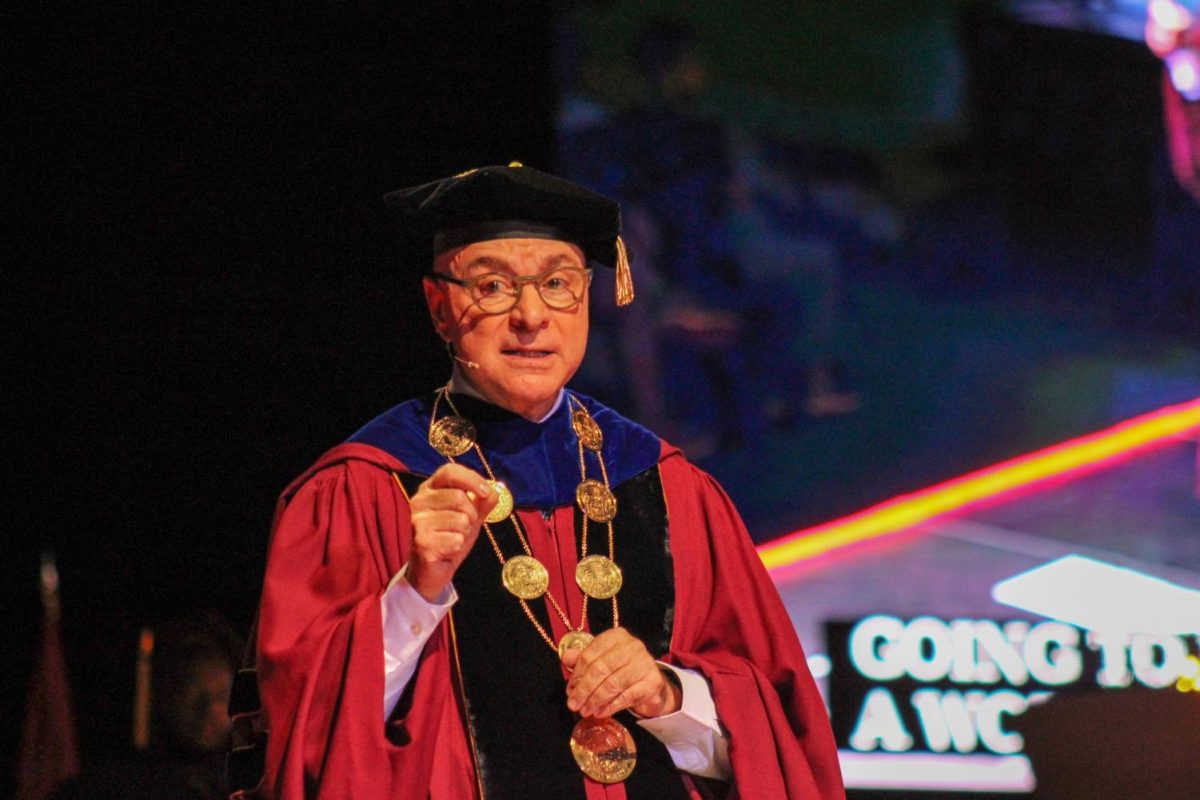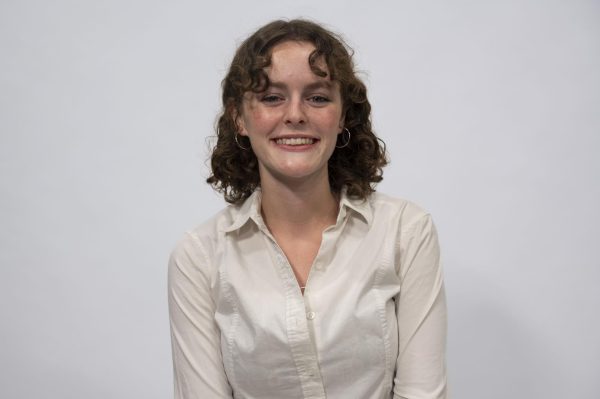“AI is our reality now,” according to Northeastern President Joseph E. Aoun.
Aoun, a longtime proponent of transforming higher education to prepare for the impacts of artificial intelligence on humankind, argued for an approach to college education that places more emphasis on “readying learners for reinvention” in an essay published in The Chronicle of Higher Education July 1.
Currently, Aoun wrote, society has a small window of opportunity to anticipate the changes AI will bring and prepare for the impact it will have on the world.
Aoun compared the rise of AI to the proliferation of automobiles in the 20th century, arguing that, for better or worse, cars “reshaped virtually every aspect of existence in modernized societies.”
“Imagine if, at the outset of the automobile era, we had predicted a rise in carbon consumption and planned ahead for offsets,” he wrote. “Or if we had proactively designed highways and roadways to minimize the disruption of neighborhoods. There is still time to do this for AI.”
Institutions of higher education are perfectly positioned to test and develop a road map to guide how society can “maximize [AI’s] positive aspects and minimize the negative ones for the benefit of humankind,” Aoun wrote — more so than public discourse or private companies.
“Colleges are honest brokers, less subject to distorting forces such as competitive pressures and profit motives,” he wrote.
Aoun, who is approaching his 18th year as Northeastern’s president, has written extensively about artificial intelligence in higher education. In 2016, he authored a similar essay in The Chronicle arguing that “the dawn of the robot age will be an opportunity, not a threat” if colleges can shift from transferring knowledge to teaching students how to generate original ideas. Aoun published a book on the topic in 2018 titled “Robot-Proof: Higher Education in the Age of Artificial Intelligence.”
Northeastern has incorporated AI education and research into its programs over the last several years. The university allocated $50 million in 2019 to launch the Institute for Experiential AI, which focuses on designing and developing “autonomous systems” that enhance collaboration between humans and AI.
The university also offers a master’s degree in artificial intelligence and computer science through Align, a recently-created “pathway for students with undergraduate backgrounds in the humanities or basic sciences to pursue careers in technology.”
While the university still entrusts individual professors with the power to determine how AI can be used in their classrooms, a 2023 position statement from the Office of the Provost instructs staff to “encourage students to use AI to think with them, not for them.”











